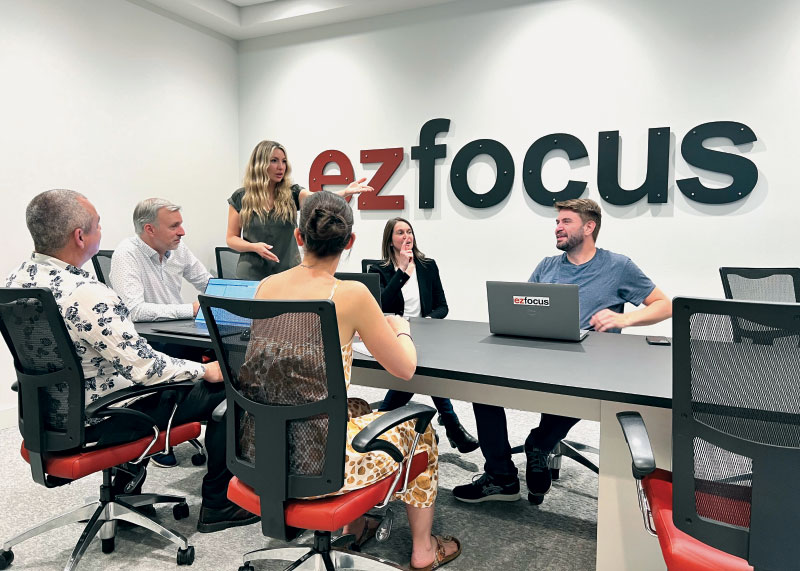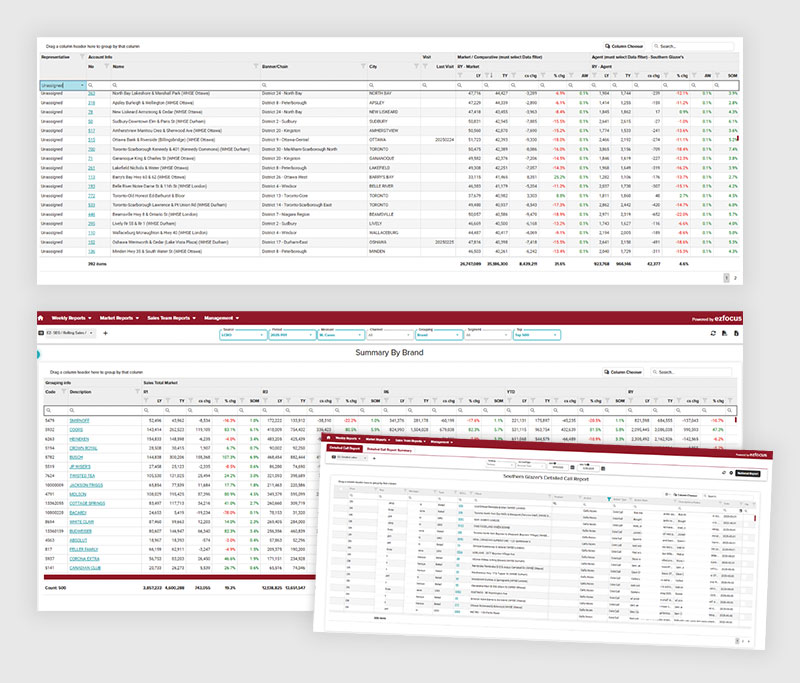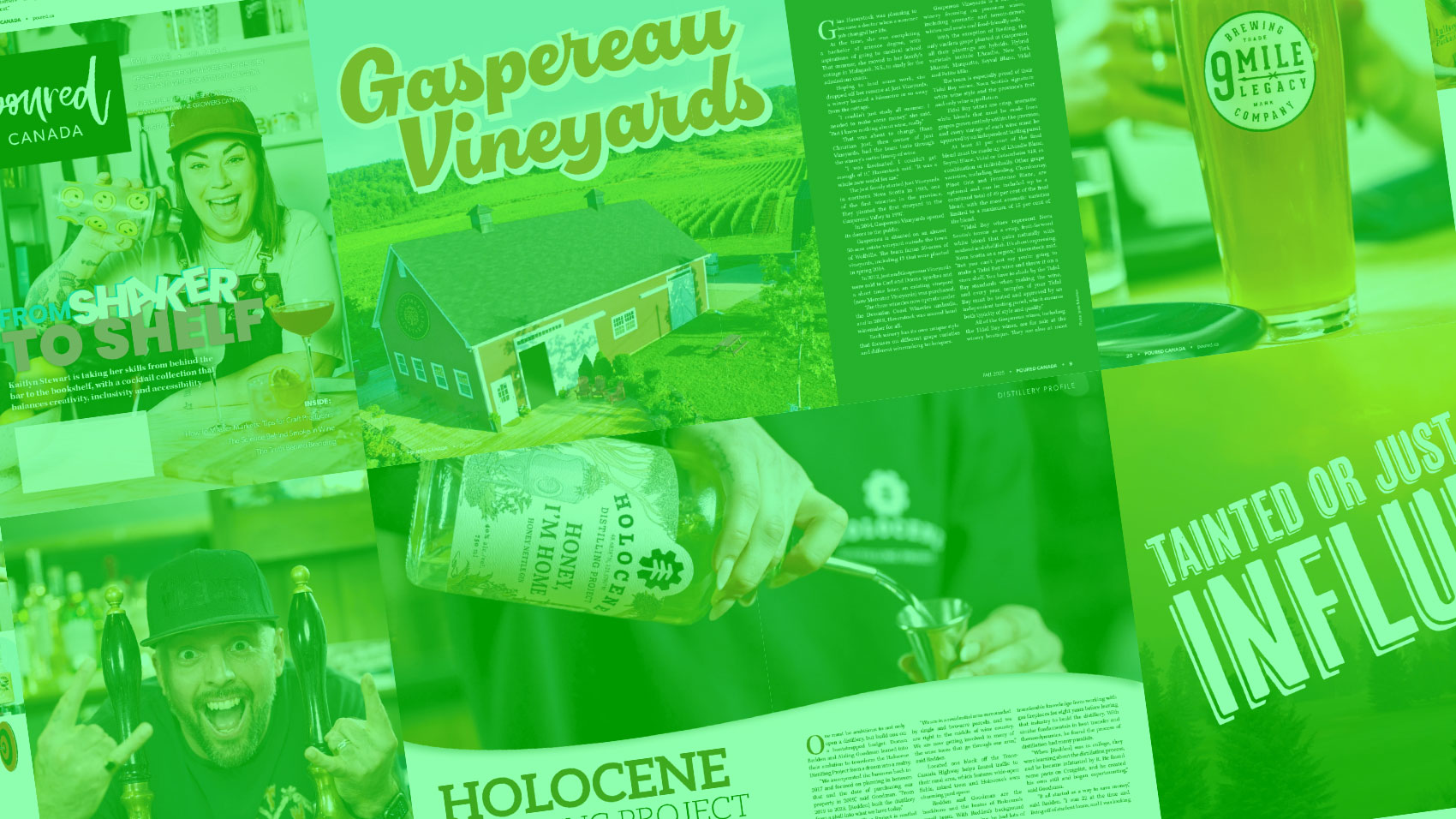As Canada’s beverage alcohol market becomes increasingly competitive and data-driven, the difference between breaking even and scaling successfully often comes down to one thing: how well a company manages and uses its data.
For small to mid-sized producers, the challenge to manage data can feel overwhelming. From dealing with various data formats to rapidly shifting market demands, accessing timely and usable insights isn’t easy. That’s why the right customer relationship management (CRM) system and data partner are incredibly important.
One such partner is EZFocus, a Canadian CRM and data management company that specializes in the alcohol and cannabis industries. Since 2012, the company has helped over 200 producers, including craft breweries, family-run wineries and distilleries, streamline how they manage their sales tracking, distribution analysis and decision-making.
“Depending on the province you do business in, you will get more than one data source and countless files and folders,” said Giselle Boulanger-Ronikier, director at EZFocus. “Rummaging through this is incredibly time consuming, and often, as a company, you don’t even see where to focus your time and money as the data is not clearly displayed for you.”

In an industry where large players often have dedicated analysts and sophisticated tracking tools, small producers need ways to compete efficiently. “The sales and marketing of the alcohol industry in Canada is rather complex,” said Boulanger-Ronikier. “However, a huge amount of information is available. We’ve developed an expertise to help our customers focus on their goals instead of allocating resources and energy to data management.”
EZFocus’s cloud-based CRM platform is built specifically for real-time access and collaboration. The system downloads, organizes and manages a producer’s raw data, allowing internal teams to skip sorting and go straight to strategic analysis and decision-making. One of the biggest advantages of a centralized CRM system is its ability to align different departments, such as sales, marketing, and production, around a shared set of goals. “When everyone sees the same data and can analyze individually, it makes it easier to communicate these points throughout your company,” said Boulanger-Ronikier.
CRM tools can transform everyday workflows for reps and brand ambassadors. Whether planning the week ahead, identifying underperforming accounts, or reviewing top-selling stock, having organized and accessible data leads to better engagement with retailers and partners.
Access to historical data, benchmarking against industry averages and customizable reports help beverage producers move beyond gut instincts and into data-informed decision-making.
“From planning your week and cross-referencing which clients need more attention based on their sales figures, to filtering your highest-performing products in a region – all of this is simple and easy to do when your data is managed properly,” said Boulanger-Ronikier.
With mobile and cloud-based access, sales reps can walk into meetings prepared with real-time data, allowing them to plan strategically. They can quickly access the sales data directly from their screens and then decide what to discuss with key decision-makers. EZFocus’s CRM tools support long-term planning and growth strategies. Access to historical data, benchmarking against industry averages and customizable reports help beverage producers move beyond gut instincts and into data-informed decision-making.
Reports can be tailored to suit the specific needs of any producer, including tracking distribution, identifying gaps in market coverage or understanding the effects of specific promotions at the store level. “Access to all the activations and promotions you’ve completed in a store can help you evaluate how to better allocate resources,” she said.

Market conditions can change rapidly, especially as consumer preferences and regulations continue to evolve. A flexible CRM system allows producers to pivot quickly, recognize emerging trends, and adjust distribution or production accordingly. “Data-driven decision-making is key,” said Boulanger-Ronikier. “It gives you a better understanding of how to forecast and adjust to the demand in real-time.”
Many beverage producers begin their careers using spreadsheets for tracking customers and orders, but they usually come to a point where the business becomes so complex that spreadsheets are no longer appropriate. “When sales reps all have different versions of tasks and customer lists, the data is inconsistent, which adds to extra work for management to decipher. When forecasting is based on outdated information or you have to check multiple spreadsheets to cross-check accuracy, it’s time to level up,” said Boulanger-Ronikier.
Whether expanding into new provinces or exploring export markets, CRM tools can support scalable growth. Producers can view performance by geography, product line or customer type, helping them refine their approach for each new market.
One common challenge with CRM adoption is ensuring that everyone, from the sales team to management, actually uses it. “Defining the why is so important,” Boulanger-Ronikier said. “People are sometimes resistant to new tools they don’t understand. Communicating the value of a great CRM and data tool to the whole team can ensure success. If they understand, it will make their day-to-day easier.”




